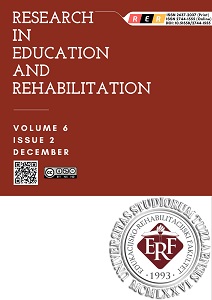Constructivism Learning Theory in Education: Characteristics, Steps and Learning Models
Constructivism Learning Theory in Education: Characteristics, Steps and Learning Models
Author(s): Abid Nurhuda, Muhamad Fiqhussunnah Al Khoiron, Yasin Syafi’i Azami, Siti Jaroyatun Ni’mahSubject(s): Educational Psychology, Pedagogy
Published by: Edukacijsko-rehabilitacijski fakultet Univerziteta u Tuzli
Keywords: Learning Theory; Constructivism; Education; Learning Models;
Summary/Abstract: Education seeks to build the best quality human resources for the future. One way to make this happen is by knowing the various forms of learning theories that function so that the process of errors in learning can be minimized. Apart from that, to increase students' enthusiasm for learning, teachers must innovate, including by using a constructivist approach to learning. So this research aims to describe the Constructivist Learning Theory in Education. The method used is a literature study with a qualitative descriptive approach, collecting data from primary and secondary sources, then analyzing the content of relevant discussions and drawing conclusions. The results of the research show that constructivist learning theory is an approach to the individual learning process in which it has principles and characteristics to answer various relevant problems, adapts to the current curriculum, focuses on student activity, and participates in assessing students' opinions when they express their opinions. The steps must include apperception, exploration, consolidation, attitude formation, and assessment using a format. Meanwhile, several learning models that are currently running are based on constructivism, including Problem-Based Learning, Authentic Learning, Inquiry-Based Learning, and Cooperative Learning.
Journal: Research in Education and Rehabilitation
- Issue Year: 6/2023
- Issue No: 2
- Page Range: 234-242
- Page Count: 9
- Language: English

